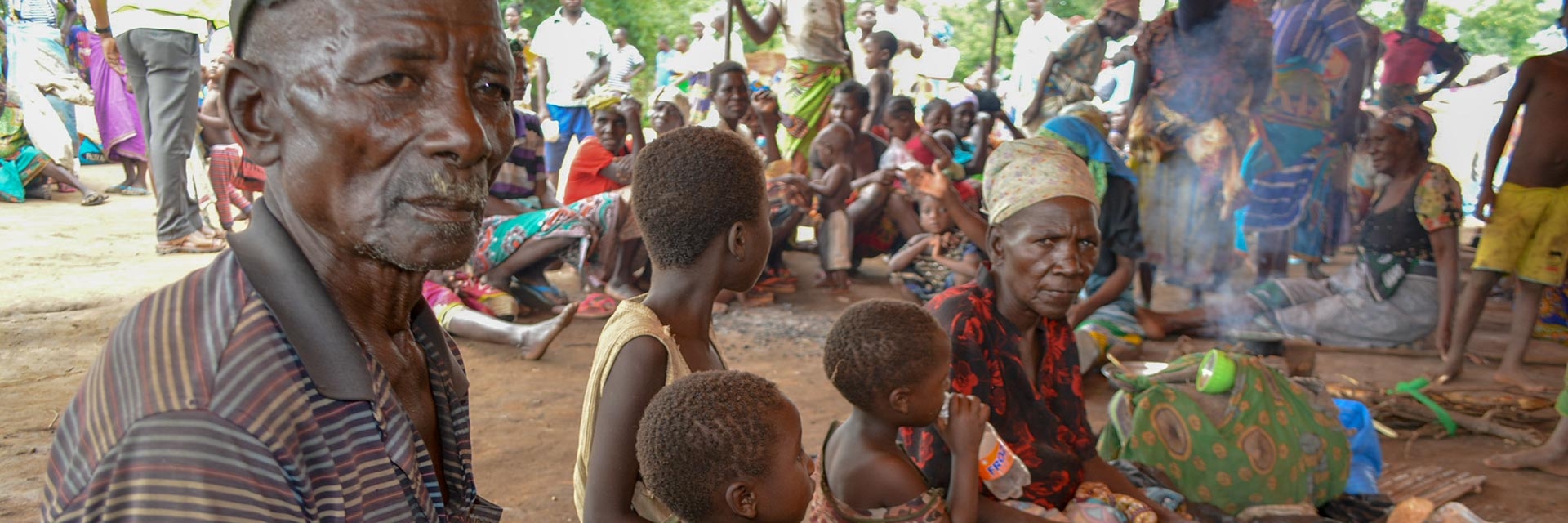
Photo: Joseph Scott/CARE
Lucky to be alive...sort of
“We only learnt that we were in danger when we saw water coming through the door,” said Dimingu Nyoka. “I grabbed my grandchildren and launched them over the falling wall. I also did the same with my wife as she has some problems with her legs.”
Dimingu, his wife Brita and their three orphaned grandchildren saved themselves from the flooding in Malawi in March by getting in their canoe and heading to higher ground. They arrived in Bitilinyu camp – a mix of grass-thatched mud huts and tents. The huts are mostly for the host community while the tents are for those who arrived here to escape the flooding. One big shed acts as the main shelter, where women cook and families sleep.
“We are lucky to be alive,” said Dimingu painfully. All they had was washed away by the floods. Their 20 chickens, their granary with two months’ worth of sorghum and their pet dog are all gone.
“But now the challenge is hunger. We only eat once a day,” he said pointing to a pot of porridge he was preparing on an open fire.
Dimingu and many others don’t have tents. The shed is not waterproof. When it rains, they stand up or huddle in a corner to try to stay dry. The swamps and puddles around the camp are a good breeding ground for mosquitoes. In the evening, says Dimingu, they come out in full force. The itching makes sleep difficult.
The camp does not have enough water or bathrooms for so many people, who are at risk of falling ill from unsanitary conditions.
Humanitarian Coalition member CARE Canada met with Dimingu and Brita and many hundreds more in Bitilinyu camp. They distributed buckets, chlorine for water treatment and plastic sheets for roofing.
It’s a start.
The floodwaters are receding in Malawi but without a house or animals or crops to go back to, Dimingu and Brita will need support for a long time to rebuild a life for themselves and their three grandchildren.